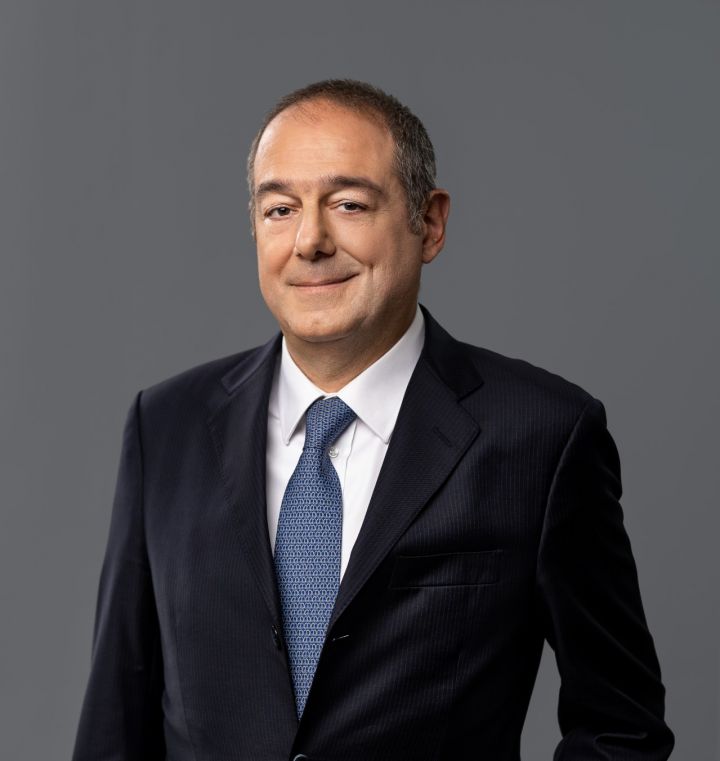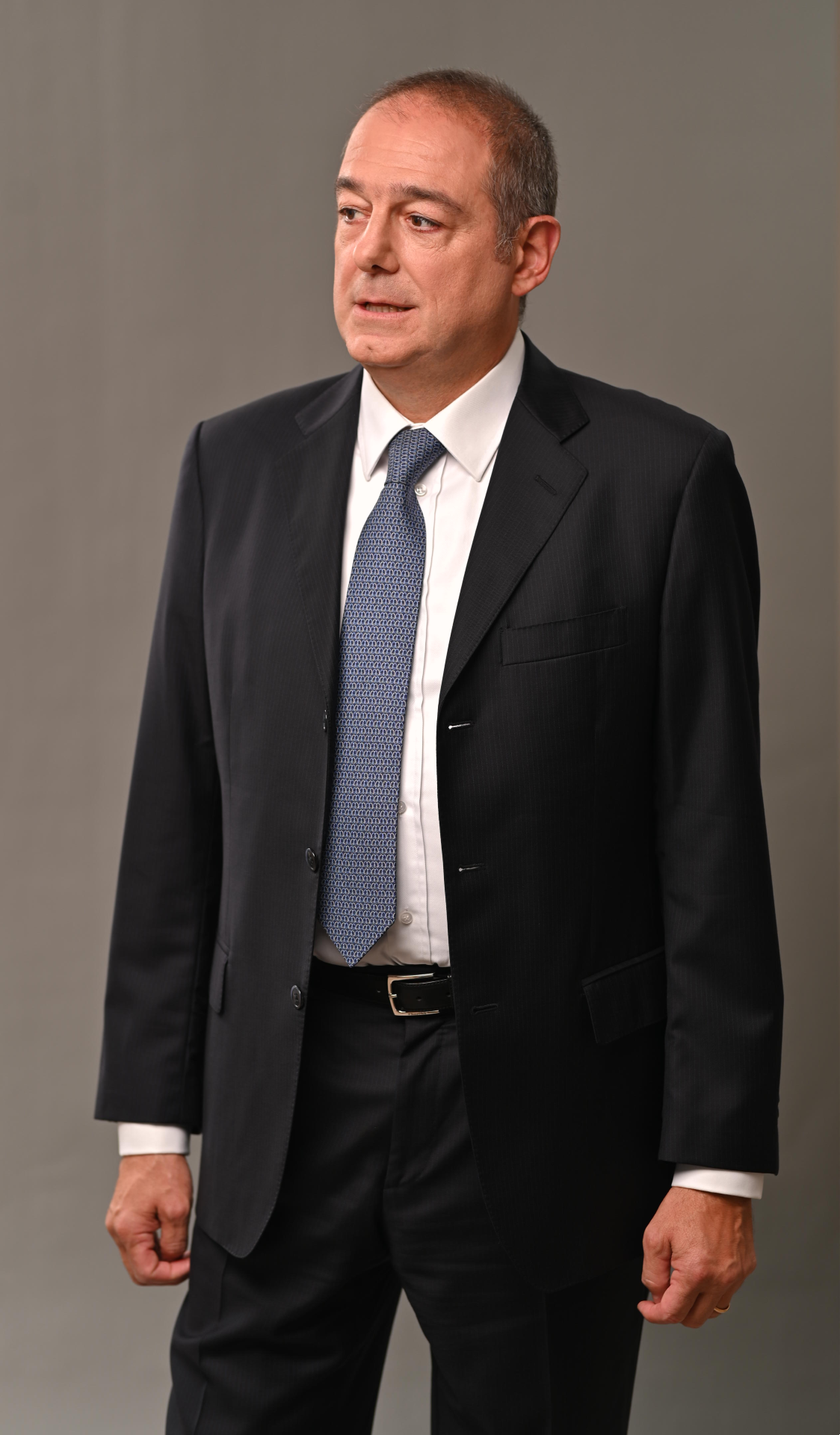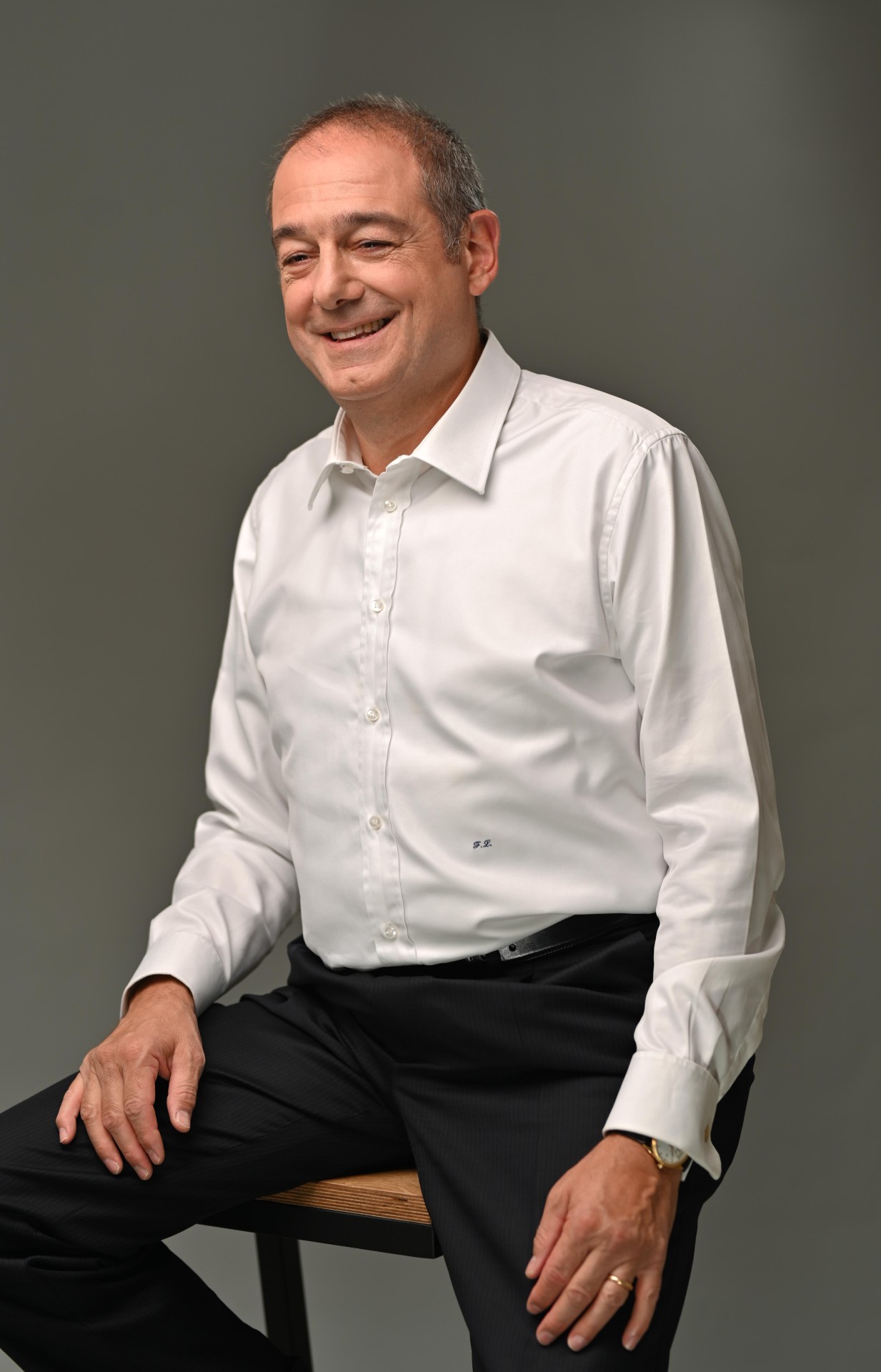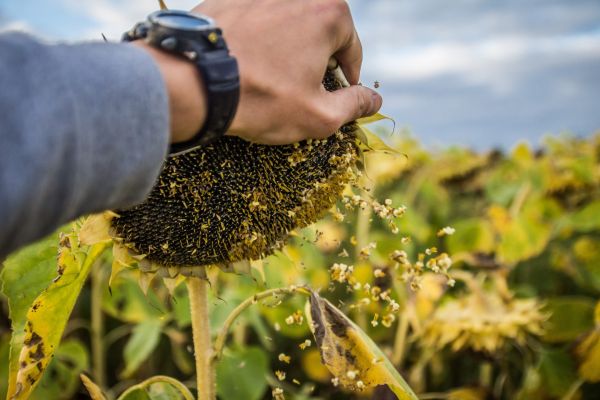Francesco Lupo: There Are More Opportunities Than Risks in Ukraine

Photo by: Pravex Bank Press Center
You don't often come across a financier for whom one of the basic principles of work is to build relationships with people. Italian Francesco Lupo, Member of the Management Board and Head of Corporate Division at Pravex Bank, believes that it is impossible to build a successful business without trusting relationships in the team. The bank’s top manager has been working outside his native Italy for more than 13 years, knows several languages and highly appreciates the opportunities in Ukraine. In an interview with Latifundist.com, Francesco Lupo told what farmers are investing in today, what is holding back investors and who is interested in land as an asset.
Latifundist.com: Francesco, how long have you been with the Intesa Sanpaolo Group? How has your career developed?
Francesco Lupo: I have been with the company for 30 years. Of these, I worked for 20 years in Italy and since 2011 — in other countries. I headed the branch in Amsterdam, then the corporate business department in Serbia. In that country, I had a team of 180 people. In 2018, I accepted an offer to join the Pravex Bank team as the Head of Corporate Business. I faced the task of rebuilding and practically re-launching the corporate business of the bank in accordance with international standards.
Latifundist.com: Why was there such a need?
Francesco Lupo: Intesa Sanpaolo bought Pravex Bank in 2008 and in recent years the group has focused on clearing its balance sheet of the assets that failed to meet the repayment standards. At the same time, the group has been developing Pravex and has capitalized the financial institution by EUR 33 mln.
In addition, the company rebranded the bank. On the one hand, we have retained the name of Pravex Bank, recognizable in the country. On the other hand, we added a logo in the form of a Roman bridge with three arches, which has symbolized the Intesa Sanpaolo group for many years. It is clear that all this is an external part of the transformations. Of course, we also gave a lot of attention to the bank’s structure and our people. Over time we have grown.
When I just arrived in Ukraine, we had 12 people in our department, and today there are already 23. And though they are new people for Pravex Bank, they are far from new to the Ukrainian banking market.
In general, Ukraine is a large and promising market. I am convinced that the expertise of our group could be very useful for it. Our goal is to bring Pravex Bank to the TOP-10 Ukrainian banks.
Francesco Lupo: Positive. I immediately noticed that Ukraine has a high level of education and many good specialists.Latifundist.com: What were your first impressions of Ukraine?
I also want to note that there are many investment opportunities in Ukraine that need to be exploited. This requires the "right" people, that is, highly qualified professionals who clearly understand the risks, know how to address them, and how to minimize them. In this sense, I am proud of my team.
Latifundist.com: How attractive is agribusiness for the bank? How long have you been cooperating with clients in the agricultural sector?
Francesco Lupo: Our bank is of course aware of the central role played by the agricultural sector in the Ukrainian economy. I still remember from the history textbook that the country was called “the breadbasket of Europe.”
Pravex, as a bank belonging to Intesa Sanpaolo, one of the largest and leading European banking Groups, has the adequate skills to understand and support the entire value chain in the agribusiness. That is, we see value at every stage: from growing, transportation, processing to trading. Therefore, we offer our clients specialized products to finance each link in this chain.
And this is confirmed by the fact that now about 30% of the bank's assets are concentrated in agribusiness because the agricultural sector in recent years has shown rather resilient to financial crises, and less cyclical than other industries, for instance, construction or metallurgical industries.
Latifundist.com: How do you assess the recent dynamics of Pravex lending to agricultural enterprises?
Francesco Lupo: In the last 1.5 years, the bank has increased its financial support for the agricultural sector with growth of loans for agribusiness that accounted for more than 50% of the total growth of the bank's loan portfolio over that period.
Latifundist.com: How much funds have farmers attracted through Pravex Bank this year?
Francesco Lupo: From January to August — approximately UAH 800 mln.
Latifundist.com: What size enterprises does the bank mainly work with?
Francesco Lupo: We have our coverage model for any industry. The bank works with three business segments: with local agricultural companies of different sizes: Domestic Large Corporate clients, Small and Medium Enterprises (SME) and with representative offices and subsidiaries of Multinational Companies in Ukraine.
We base our credit assessment on the company’s transparency and readiness to provide a wide range of information to the Bank systematically rather than on its size.
It is important for the bank employees to understand their customers, and this is possible only through open and transparent communication with them. Indeed, in addition to analyzing dry numbers, it is also important for the bank how the company understands and can explain its business model.
Surely, large companies, agricultural holdings are more successful in building communications with banks. Small farmers just make their way toward it. However, Pravex Bank is open to clients from different segments.
Latifundist.com: What is the ratio of local and international borrowers?
Francesco Lupo: Approximately 60-70% to 30-40%.
Latifundist.com: How often do farmers apply to the bank for financing the construction and reconstruction of infrastructure facilities?
Francesco Lupo: In recent years, the number of such requests has increased, as Ukrainian agribusiness needs investments to upgrade production facilities, introduce modern technologies to be competitive in the world market.
In this context, we can offer special conditions to the companies for the acquisition of Italian technologies, equipment, and machinery that are required in the international agroindustry and food production.
Latifundist.com: For which objects are funds raised?
Francesco Lupo: Mainly for the modernization of grain elevators and purchases of equipment for sunflowerseed processing, harvesters, irrigation systems.
Latifundist.com: Ukraine has excessive oilseed processing capacities; there is a struggle for raw materials. And the problem with many businesses is that they are leveraged. Is it not yet a risky direction in the opinion of the banking community?
Francesco Lupo: There are risks in this segment. However, we also find some interesting niche players. After all, it is clear that vertically integrated holdings will survive in any scenario, whereas it is much more difficult with small players: they have to compete for raw materials.
Small players strive to be more efficient and this requires investments in production modernization. Communicating with them, we also find out how they are going to mitigate the risks of the increase in prices for sunflowerseeds and energy costs, and how they plan to compete in the market. That is, we are considering how the company's business plan depends on the market conditions.
Although, there were times when we refused to finance some companies, in fact, doing them a good service this way, so that in the future the financial burden would not destroy such players.
Latifundist.com: Do you often have to refuse players in the oil and fat industry?
Francesco Lupo: Roughly speaking, 50% of all applications.
Latifundist.com: You have mentioned special conditions for purchases of Italian equipment. What are these conditions?
Francesco Lupo: These are import letters of credit with confirmation and post-financing from our group Intesa Sanpaolo, containing special pricing conditions for 5 years. We can also provide an alternative confirmation from the EBRD.
Latifundist.com: Does the bank have any other programs for financing farmers and processors?
Francesco Lupo: We have 2 programs aimed at supporting small and medium-sized businesses in the agro-industrial complex. The first one is a joint program with the government to compensate agricultural producers for the applicable interest rates. The second one is “Affordable Loans 5-7-9%.” The maximum loan amount under the second program is UAH 50 mln for 5 years. According to this program, the state shall compensate for the interest rates, whereas the total compensation amount can reach 1.5 NBU’s key policy rate. The primary focus of the program is small and medium-sized enterprises with turnovers of up to EUR 10 mln.
Just in the summer, Pravex Bank began lending under this program and has already issued loans for about UAH 50 mln. As part of the program, the bank finances the working capital requirements, corporate investment loans, and refinances other bank loans at a lower rate. The first mentioned program (interest rate compensation), by the way, is also relevant for the purposes of investment financing, working capital replenishment, etc.
Latifundist.com: Are these government programs in demand?
Francesco Lupo: There is a lot of interest in funding through these programs. Indeed, while companies cannot own land, their aspirations to invest in the business for the long term are restrained. And such programs are designed to somewhat encourage investments.
Latifundist.com: Do you think that from 2024, when companies will be able to acquire land, the inflow of investments into the agricultural sector will increase?
Francesco Lupo: We expect a significant increase in investments, as companies (both local and international) will be willing to take more risks due to owning land. By the way, now, while the market is open to individuals, our bank is preparing special loan products for them.
Latifundist.com: Loans at what interest rate?
Francesco Lupo: Interest rates are set at a fair level taking into consideration the cost of risk, and the availability of the company to work with the bank in a comprehensive manner (in other programs as well).
Latifundist.com: If the loan is in hryvnia?
Francesco Lupo: Yes. Although in general Pravex Bank finances in all currencies. The only thing that is important when it comes to currency is the availability of foreign exchange earnings from the client.
Latifundist.com: In general, do you think land is an interesting investment tool for individuals today?
Francesco Lupo: Given the current restrictions (100 ha per person), it is interesting in principle. Although there is a speculative demand for land for resale in the market. However, there is also a demand from end-users, that is, those who are interested in doing, for example, organic farming, vegetable growing or other niche production, where the area of land is not so much important as the intensity of production. For such individuals, the land is an interesting investment.
Latifundist.com: That is, after all, for people associated with the agricultural business.
Francesco Lupo: Investments in the land are interesting for market participants and farmers since this is their main business, where they can develop, possibly unite with other players in cooperatives, etc. For non-professional participants, land can be of interest, like any new investment object. Now, however, the land market is actually arising – since July 1, the deals base is about 20 thou. I think that the attractiveness of this investment will become clearer in a year and a half when the market becomes a bit more structured.
Latifundist.com: What are your main principles of work?
Francesco Lupo: Firstly, it is very important for me to work in a place where there are people with whom I want to have a cup of coffee. This is a team where all of the employees, managers, shareholders are happy and strive to make others happier. It is pretty difficult to achieve, but if you try and succeed, then the business will thrive.
Secondly, it is always being ready for anything. As Lord Baden-Powell wrote: "there's no such thing as bad weather, only inappropriate clothing." That is, you must always be prepared for any troubles.
Thirdly, there must be accountability and responsibility in everything: in relations with customers, employees. However, it does not evolve all of a sudden. Fortunately, more and more people realize the benefits of development based on these principles.
Latifundist.com: What do you consider your greatest achievement?
Francesco Lupo: As an Italian, of course, I love my country. However, I have always been interested in the culture and customs of other countries. Therefore, I probably consider it an achievement to be able to work abroad (for 12 years already), representing an Italian bank, and thus bring Italian culture to the world.
As for the personal sphere, two sons and a daughter are my greatest achievements in life.
Latifundist.com: What goals do you set for yourself as the head of the corporate business direction of the bank?
Francesco Lupo: In our four-year plan, we are focusing on the ESG principles — “environmental, social and corporate governance”, leveraging also on the Intesa Sanpaolo Group’s international lead in this field. That is, for us, the sustainable development of the company is not only expressed in the profit figures, but also in positive values. We want to be sustainable, environmentally and socially, inclusive and creating value for all the stakeholders. We are also working to help our clients improve the sustainability profile of their own businesses. To reach these goals, we’ll accelerate in digitalization and product innovation.
Alla Sylyvonchyk, Latifundist.com



